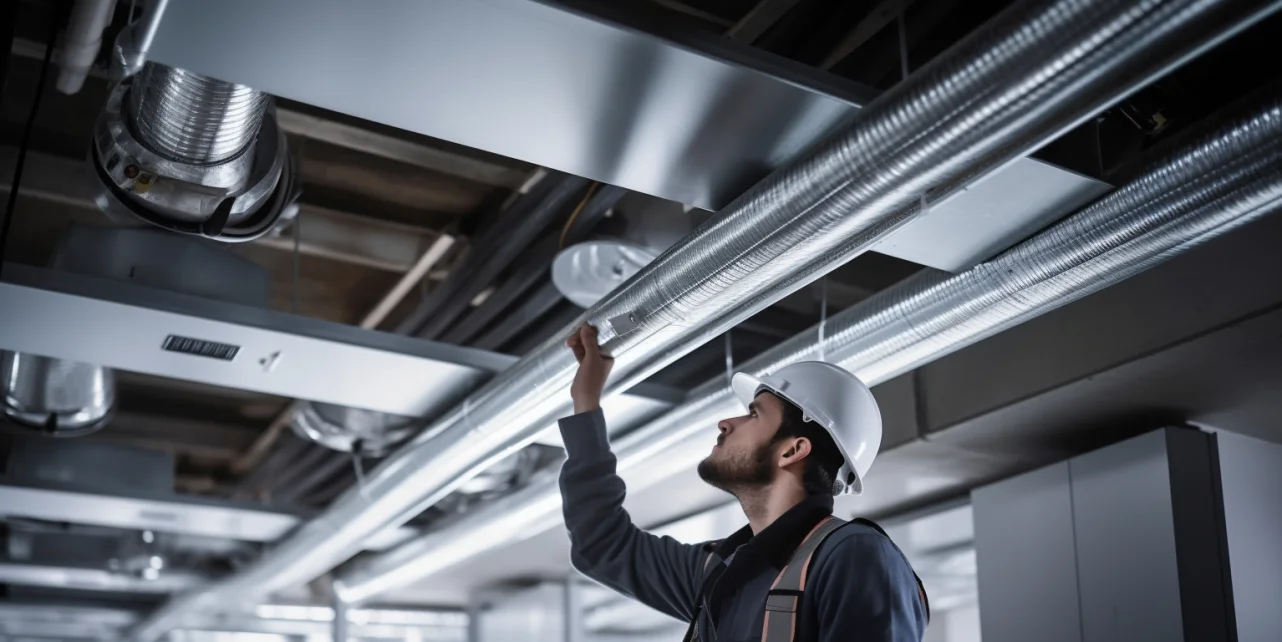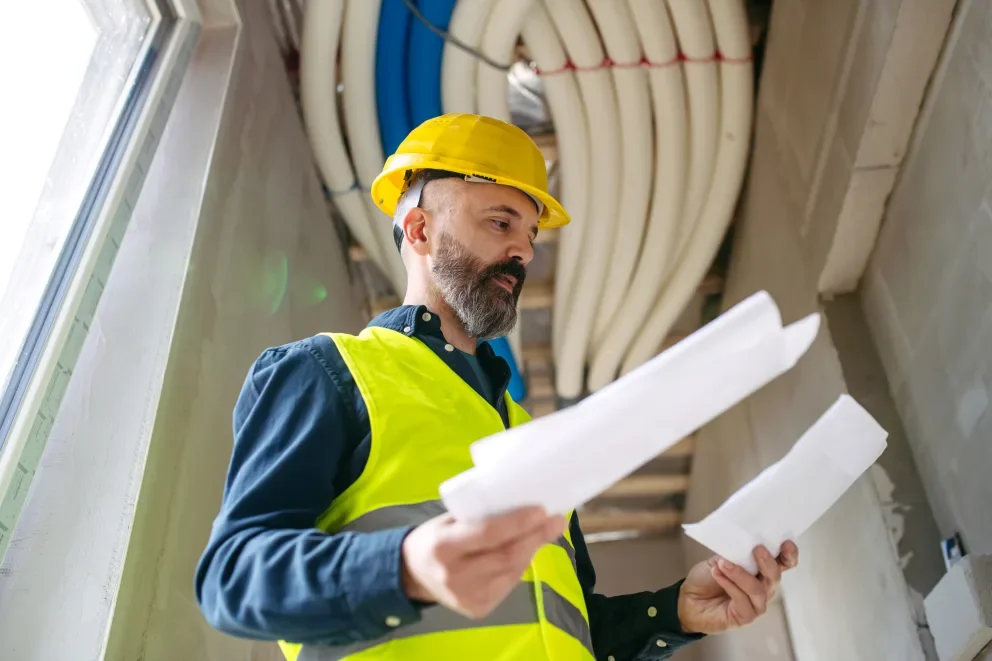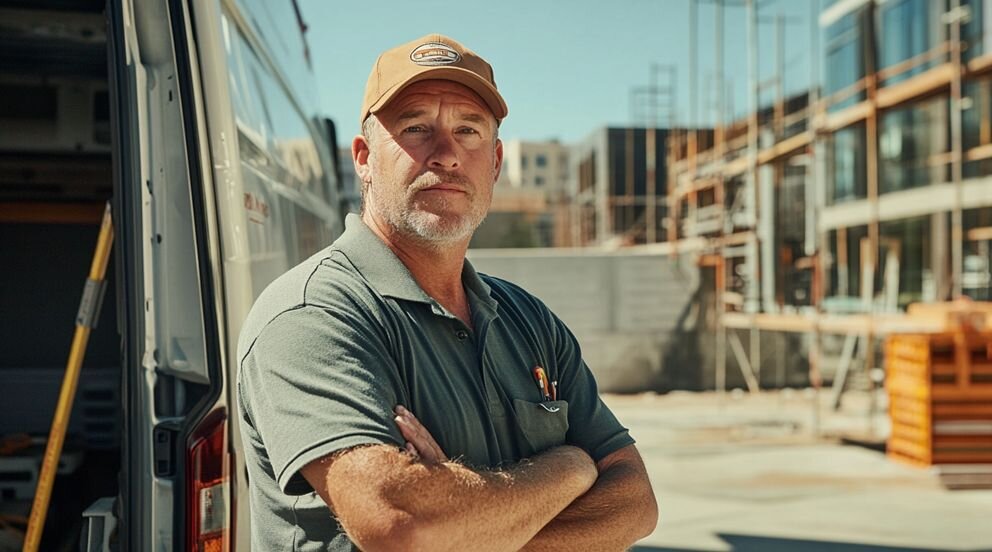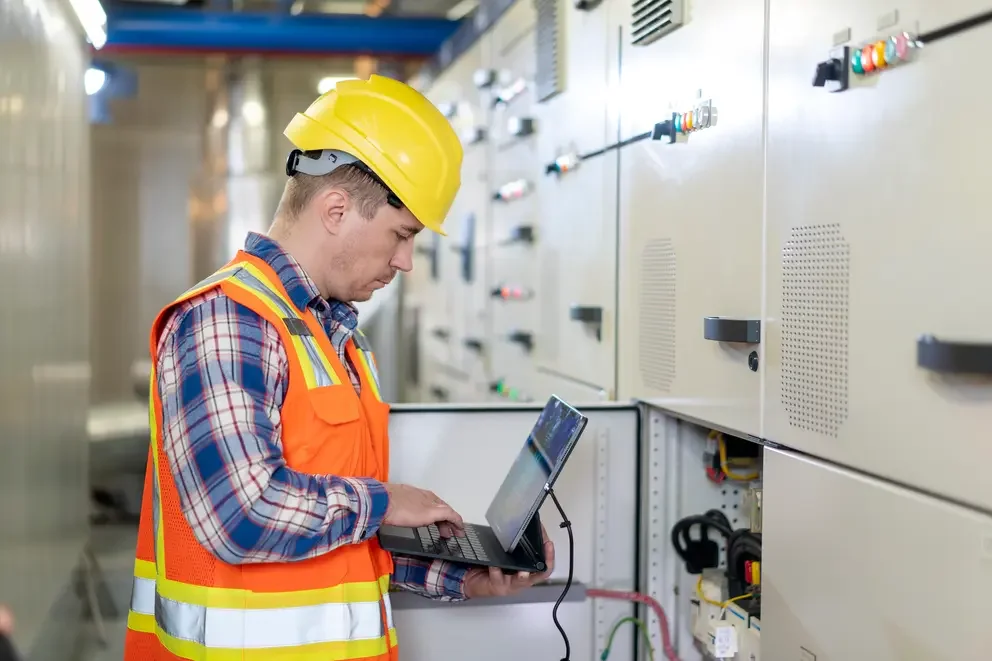Sustainable HVAC systems are becoming increasingly popular as people become more aware of the impact that traditional heating, ventilation, and air conditioning systems have on the environment. These systems are designed to be energy-efficient, utilize renewable energy sources, and reduce the overall carbon footprint of a building.
One of the key components of a sustainable HVAC system is the use of renewable energy sources, such as solar or geothermal energy. These sources require minimal fossil fuels and can significantly reduce the amount of greenhouse gas emissions. In addition, sustainable HVAC systems are designed to be energy-efficient, meaning they use less energy to heat or cool a building, resulting in lower energy bills and reduced strain on the environment.
Another important aspect of sustainable HVAC systems is their ability to regulate indoor air quality. These systems are equipped with filters and ventilation methods that can remove pollutants from the air and ensure a healthier living or working environment. This is especially beneficial for those with respiratory issues or allergies.
The sustainability of HVAC systems also extends to their maintenance and lifecycle. They are designed to have a longer lifespan, meaning less frequent replacements and waste. Additionally, they require minimal maintenance, reducing the need for harmful chemicals and materials to be used.
Through the use of sustainable HVAC systems, buildings can achieve LEED (Leadership in Energy and Environmental Design) certification, which recognizes environmentally friendly and sustainable construction practices. This not only benefits the environment but also adds value to the building.
In conclusion, the adoption of sustainable HVAC systems is crucial in reducing the environmental impact of buildings. These systems not only improve energy efficiency and reduce costs but also contribute to cleaner air and healthier living and working spaces. As more people embrace sustainable practices, it is important to consider sustainable HVAC systems as an integral part of building design and construction.
The Importance of Energy Efficiency in Sustainable HVAC Systems
Energy efficiency is a key factor in sustainable HVAC systems as it directly impacts the environmental and financial sustainability of a building. These systems are designed to use less energy while still providing effective heating, ventilation, and air conditioning. This not only reduces the carbon footprint of a building but also results in significant cost savings for the owner.
By utilizing renewable energy sources, they reduce their reliance on fossil fuels, which are major contributors to greenhouse gas emissions. This in turn helps to combat climate change and promote a healthier planet for future generations.
In addition to reducing energy consumption, they also incorporate advanced technologies that improve their overall performance. This includes the use of smart thermostats, variable-speed motors, and high-efficiency air filters. These features not only improve energy efficiency but also contribute to better indoor air quality. The financial benefits of energy-efficient sustainable HVAC systems are also significant.
Furthermore, energy-efficient HVAC systems are an important aspect of achieving LEED certification and other green building standards.
Benefits of Utilizing Renewable Energy Sources in HVAC Systems
Incorporating renewable energy sources into HVAC systems has numerous benefits for both the environment and building owners. These sources, such as solar and geothermal energy, offer a sustainable and efficient alternative to traditional fossil fuels.
One of the main advantages of using renewable energy in HVAC systems is the reduction of greenhouse gas emissions.
In addition to being better for the environment, renewable energy sources also offer cost savings for building owners.
Using renewable energy also helps to reduce dependency on non-renewable resources. As fossil fuels become increasingly scarce, utilizing renewable energy sources can help ensure a more sustainable and self-sufficient future.
Furthermore, incorporating renewable energy into HVAC systems can attract environmentally conscious tenants who value sustainable practices. This can be a major selling point for building owners and can also contribute to a positive public image for the company or organization.
How Sustainable HVAC Systems Contribute to Better Indoor Air Quality
Indoor air quality is a crucial factor in creating a healthy and comfortable indoor environment.
These systems are equipped with high-efficiency air filters that can capture and remove harmful pollutants and allergens from the air. This is especially beneficial for those with respiratory issues or allergies.
This can also help to reduce the buildup of excess moisture, preventing the growth of mold and mildew.
In contrast, traditional HVAC systems often recirculate the same air, leading to a buildup of pollutants and allergens. This can have negative impacts on both the health and comfort of building occupants. Sustainable HVAC systems, however, utilize advanced technologies to provide a constant supply of clean and fresh air.
The Durability and Longevity of Sustainable HVAC Systems
Durability and longevity are key components of sustainable HVAC systems. These systems are designed to have a longer lifespan compared to traditional HVAC systems, resulting in less frequent replacements and waste.
One of the reasons for their durability is the use of high-quality, sustainable materials in their construction. These materials are resistant to wear and tear and can withstand harsh weather conditions, ensuring the longevity of the system.
Moreover, sustainable HVAC systems require minimal maintenance, reducing the need for harmful chemicals and materials to be used. This not only contributes to the sustainable nature of the system but also reduces costs for building owners.
Another factor that contributes to the longevity of sustainable HVAC systems is their ability to adapt to changing conditions.
The durability and longevity of these sytems also have financial benefits for building owners. Additionally, the longer lifespan of these systems can provide a return on investment in a relatively short period of time.
Achieving LEED Certification through the Implementation of Sustainable HVAC Systems
One category in which sustainable HVAC systems contribute to LEED certification is Energy and Atmosphere. These systems can help achieve points by reducing energy consumption and utilizing renewable energy sources, resulting in a more efficient and sustainable building.
In addition, they can also contribute to the Indoor Environmental Quality category. Through advanced filtration methods and ventilation techniques, these systems can improve indoor air quality, contributing to better occupant health and well-being.
Another important category in which sustainable HVAC systems play a role is Materials and Resources. These systems are constructed using sustainable materials and have a longer lifespan, reducing the need for replacements and generating less waste.
Furthermore, sustainable HVAC systems can also contribute to Innovation points in the LEED certification process. By utilizing advanced technologies and renewable energy sources, these systems demonstrate innovation and a commitment to sustainability.
Key Takeaways
Sustainable HVAC systems are becoming increasingly popular due to their ability to reduce energy consumption, utilize renewable energy sources, improve indoor air quality, and contribute to a healthier planet. They offer financial benefits to building owners, such as cost savings and increased property value. Utilizing renewable energy in these systems can also reduce dependency on non-renewable resources. Sustainable HVAC systems are durable and have a longer lifespan compared to traditional systems, resulting in less waste and maintenance costs. Through their implementation, LEED certification can be achieved, demonstrating a commitment to sustainable practices and receiving recognition in the construction industry. Overall, sustainable HVAC systems play a crucial role in creating a more sustainable and eco-friendly building environment.



